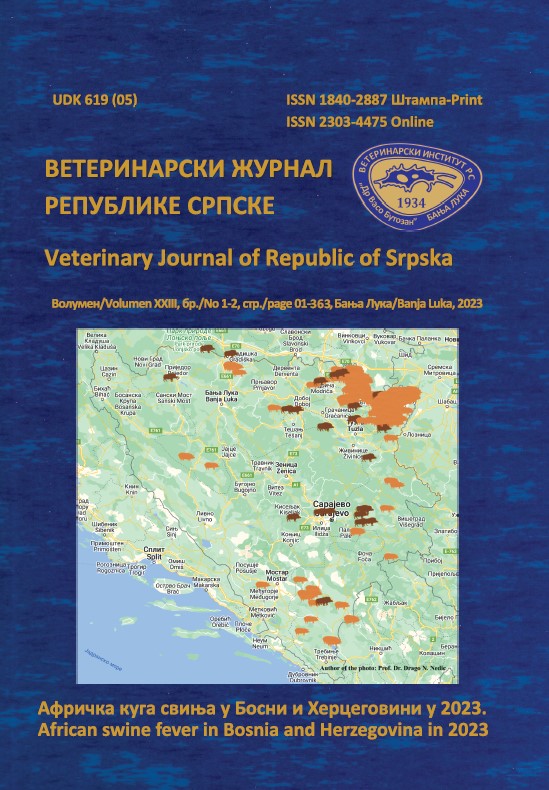SENSITIVITY OF BACTERIAL STRAINS ISOLATED IN CASES OF COW MASTITIS TO ANTIBIOTICS AND ESSENTIAL OILS
DOI:
https://doi.org/10.7251/VETJEN2301082HAbstract
Mastitis is an inflammatory reaction of the udder caused by microorganisms, chemical or mechanical injuries. Bacterial mastitis, caused by several types of bacteria, is divided into two main groups: contagious mastitis caused by Staphylococcus aureus, Streptococcus agalactiae, Streptococcus dysgalactiae, Mycoplasma bovis and mastitis caused by the ubiquitous bacteria Escherichia coli, Pseudomonas aeruginosa or Proteus spp. Currently, instead of using antibiotics, new strategies are being sought to reduce this clinical health problem. The aim of this study is to determine the sensitivity of bacterial strains causing mastitis to antibiotics and essential oils of oregano (Origanum compactum, Origanum majorana) and thyme (Thymus serpyllum). Mammary gland secretion samples, obtained by mechanical and manual methods, from dairy cows from the Kalesija and Gradačac areas were used. A total of 200 samples from dairy cows in different periods of lactation and age were examined. Mastitis control included determining somatic cells count in milk with the California mastitis test, or counting somatic cells on the Fossomatik apparatus, after which all samples with an increased number of somatic cells were microbiologically tested. Based on the obtained results, it can be concluded that there are justified reasons why the use of essential oils should be considered as an alternative to the use of antibiotics in the therapy of animals suffering from mastitis.

